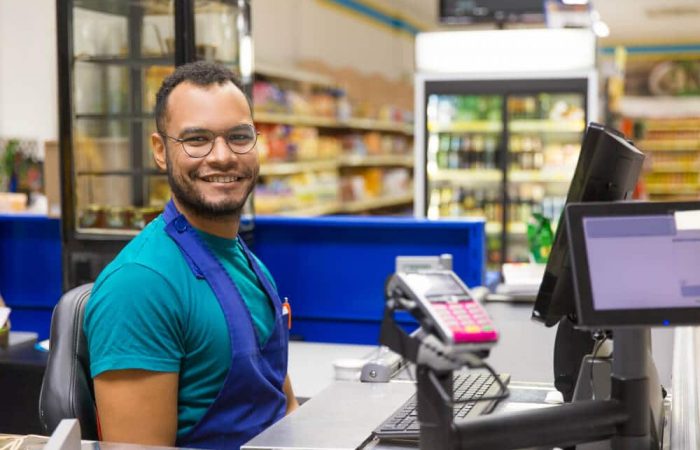Running a small business is a big responsibility itself and you don’t want to complicate things by doing everything all by yourself.
You probably have the infrastructure and required resources – what you need is something that could help you streamline your entire business process, and this is where POS systems shine.
In fact, a survey by Statista found that 80% of small business owners said they sold more after using a POS system – so why not give it a try?
When selecting a POS system, there are several key elements to consider. In this blog, we’ll guide you through everything you need to know about selecting the best POS system for your business.
Assessing Your Business Needs
It’s always a good idea to understand what your business needs when selecting a POS system – so you don’t make unnecessary investments.
One of the best parts about POS systems is that they can be tailored according to your business needs so you can customize it according to your specific requirements.
1. Understanding Your Business Type and Industry Requirements
Before getting a POS system, you need to know what type of business you have and what it needs. Different businesses need different things from a POS system.
For example, stores might need barcode scanning and inventory management. Restaurants might need table management and kitchen display systems.
Think about what kind of business you have and the type of work you do. Then find a Point-of-Sale (POS) system that is right for your business. This way, you can focus on systems that meet your needs.
2. Identifying Specific Features and Functionalities Needed
Once you understand your business needs and industry standards, you can now go to the next step: Identifying specific features and functionalities needed.
These could include payment processing, CRM (managing customer relationships), and employee scheduling.
Make a list of features that you need and ones that would be nice to have. Think about inventory control, reporting, integration with other apps, and how easy it is to use. Some features may help you do your work faster and increase sales.
3. Determining your budget constraints
When choosing a POS system, think about how much money you can spend.
A fancy system with lots of features might be nice, but it could cost too much. Check out different systems that are in your budget. Find one that gives you all the things you need while still being affordable.
Yes, it would cost you a little but the ROI (Return on Investment) must be considered. Software Advice did a survey and found that 44% of small business owners want POS systems.
They believe this will help the business owners get more money in return from their investments.
Remember that you need to buy extra things for POS systems. You will have to pay for a cash drawer and barcode scanner so make sure you include these prices in your budget.
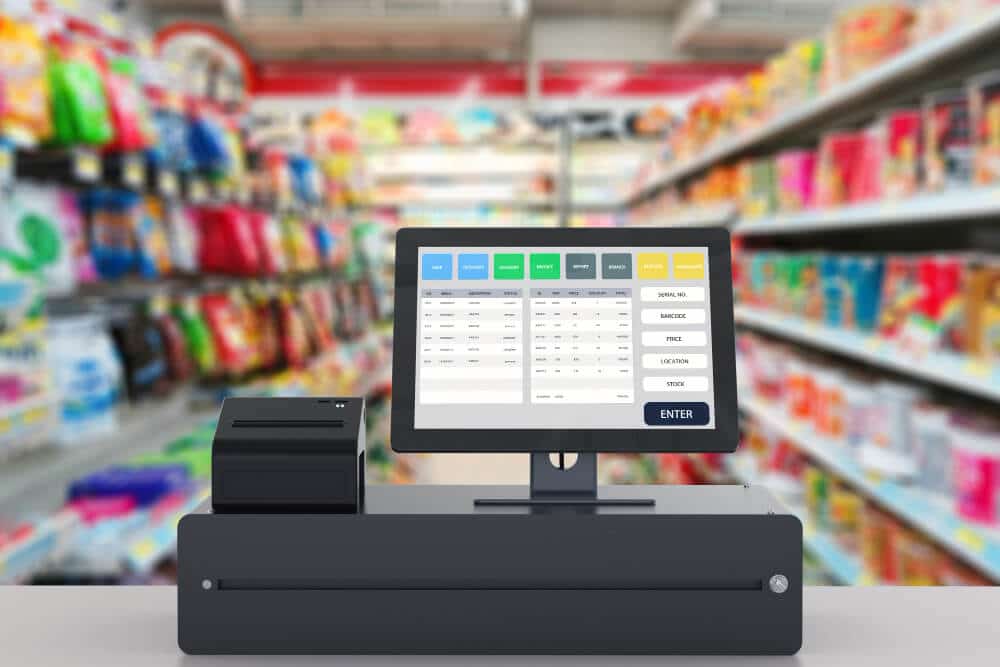
Streamline your business with Octopos– A Complete POS System with Big Boys Tools without the Big Price
It is a lot more than a point of sale. Octopos is easy and intuitive for you and your staff to use. Yet you get all these sophisticated tools to manage inventory, track and engage customers, get meaningful insights into your business, and much more.
Key Factors to Consider
Here are some key factors to consider when selecting a POS system:
Ease of Use
When you choose a POS system, it should be easy to use. This will make the work easier for both you and your employees. Choose one that is simple to understand with clear directions and helpful features. This will save time and help everyone do their jobs better.
Integration Capabilities
Integration capabilities mean that a POS system can easily work with other programs and tools used by your business.
This includes accounting, inventory management, and marketing platforms. A POS system with strong integration capabilities makes it easier to do things like exchange data between systems without having to do it manually.
Scalability
A POS system can help your business grow. Look for a system that has features like cloud storage and mobile capabilities so you don’t have to change it later if things change. This way, the POS system can go with your business as it grows.
Payment Processing Options
It is important to give customers different ways to pay. 63% of people like it when they have a choice. A POS system that allows customers to use credit cards or mobile payments will make them happy and help you make more sales.
The Mobile Payments Study by Pew Research Center found that 46% of Americans aged 18-29 prefer using mobile payment options at checkout, highlighting the importance of mobile-friendly POS systems for attracting younger customers.
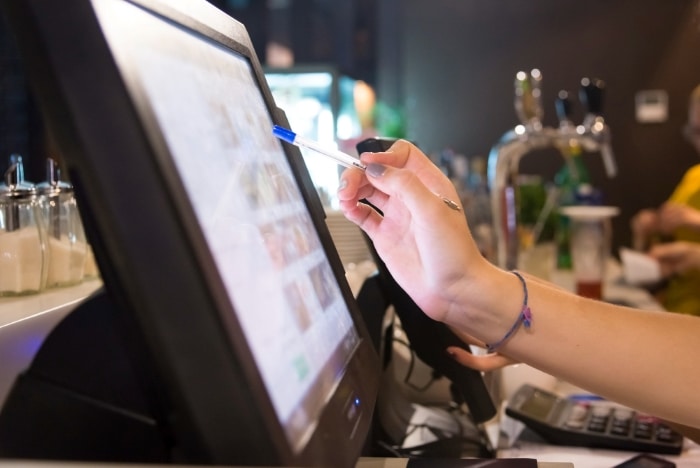
Security and Data Protection
It is important to keep customer and business information safe when using a POS system. Choose a system that encrypts information, follows industry standards, and meets safety regulations like PCI DSS. This will help protect your data and make customers feel safe.
Customer Support
When you choose a POS system, it is important to pick one that offers good customer support. This means someone will be available to help with technical problems and answer questions.
Look for a provider who can help quickly through phone, email, or chat so your business runs smoothly and there are no delays.
Reporting and Analytics
A POS system helps businesses to understand sales, inventory, and customers. It shows what is happening in the business. This information can help you make decisions that will help your business grow and be successful.
Hardware Compatibility
It is important to make sure the Point of Sale system you pick will work with different kinds of hardware.
This includes things like barcode scanners, receipt printers, and card readers. If you find a system that works with different types of hardware, it can help your business run better and smoother.
Cloud-Based vs On-Premise
Cloud-based POS systems are cheaper and your data can be accessed from anywhere. On-premise systems are more secure and you can customize them.
When choosing the best option, think about how much money you have, what you need for your business, and how much control over your data you want.
Employee Management
A POS system helps manage employees better. It makes it easier to keep track of performance and who can access what.
According to The Small Business Administration (SBA), businesses with a POS system are 24% less likely to experience employee theft. This feature helps make the workplace run more smoothly and decreases any possible risks.
Inventory Management
Inventory management in a POS system is necessary for small businesses. According to Forbes, 61% of owners like this feature. In addition, by using a POS system, businesses can reduce inventory carrying costs by 4-8%, according to Intuit.
This feature makes it easier to keep track of how much stock you have, helps sell more things, and saves money.
Warranty Period
A warranty period is a time period a company promises to fix or replace its product if it breaks. This gives customers confidence that the item will last and shows the company is sure of its quality.
The same thing applies to POS systems. Look for a provider with an extended warranty to protect your purchase and the customer experience.
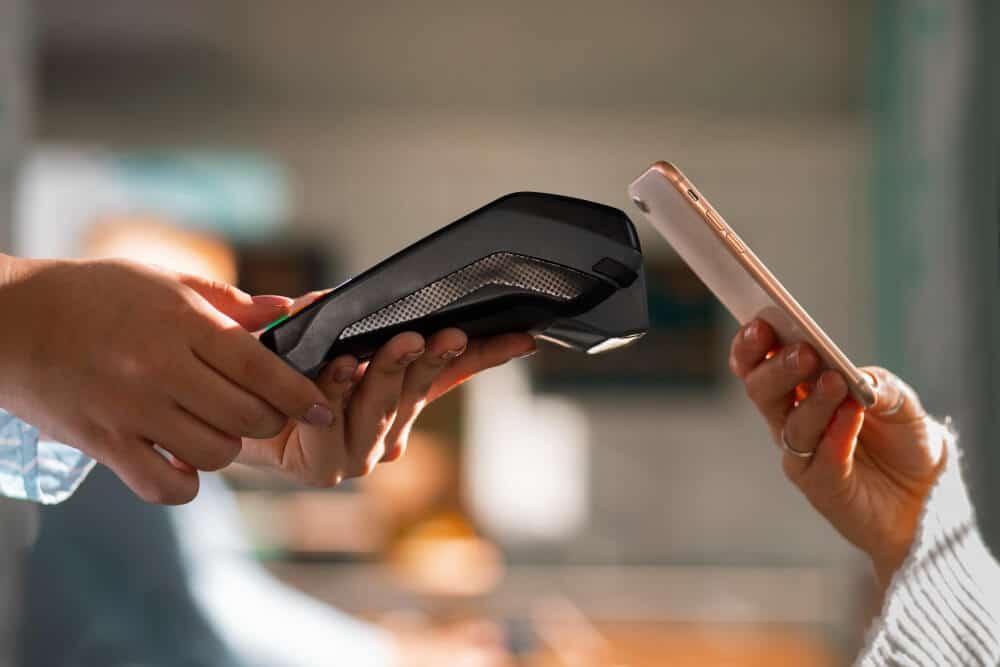
Important Features and Functionalities
So now that we know what to consider when it comes to choosing a POS system for your business, let’s take a look at some of the important features and functionality that it offers:
Sales Processing and Payment Acceptance
POS systems make it easier to sell items – they help you accept different kinds of payments, give refunds, and offer discounts. This makes it better for customers and helps your business grow faster.
Customer Relationship Management (CRM)
CRM in a POS system helps businesses collect information about their customers. This helps them make special offers and create loyalty programs so they can keep customers happy.
It also helps the business succeed in the long run since customers are more likely to come back if they have had a good experience.
Integration With Third-Party Apps and Hardware
A POS system can connect to other apps and hardware. This may include accounting software, online stores, and ways to manage inventory. This connection makes it easier to do things like manage money, sell products online, and keep track of items in stock.
Promotions and Discounts
A POS system helps businesses create special offers, deals, or discounts. This makes customers happy and encourages them to come back.
It also makes it easier for staff and ensures the prices are always right. This way you can make better business decisions, leading to long-term success.
Invoice Management
Invoice management in a POS system helps with billing by creating and filing invoices. It can help you keep your money organized, avoid mistakes, and give customers an invoice that looks nice.
This makes it easier to control cash flow and make sure customers are happy. Invoicing is a big part of any business so you want to make sure everything is running smoothly and up to the mark.
Data Security and Compliance
A POS system helps protect sensitive customer and business information. It does this by using encryption, secure data storage, and access control measures.
This keeps bad people from getting in, makes sure private information stays private, and makes customers more likely to trust the company.
Order Management
A POS system makes it easier to handle orders from customers. It helps to process, track, and complete the orders.
For example, if you own a restaurant, it would help to track food orders and manage the delivery process. This makes sure orders are fulfilled efficiently and accurately so customers always get what they want.
Integration Capabilities
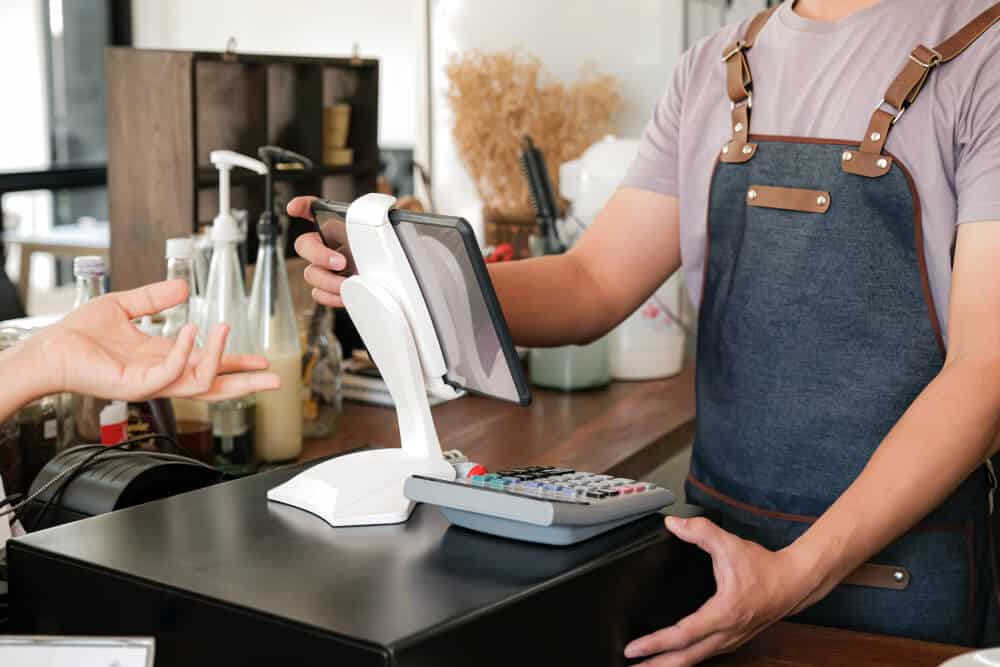
Let’s find out how a POS system can easily integrate with your existing business processes.
Compatibility with accounting software
Accounting software and a POS system work together. This helps move information between the two easily and quickly. It also helps update sales, inventory, and customer info automatically.
This makes it easier to manage your money, make reports, and decide what to do next. All of this makes it simpler for you to run your business.
E-commerce integration
One of the best parts of a POS system is the ability to integrate with e-commerce stores.
If you have an e-Commerce store you already know how important it is to manage all the tasks seamlessly – and a POS system will not only help you do that, it will also make the process faster and easier.
A POS system can help you with:
- Sync information between online and offline sales
- Manage inventory more easily
- Accept payments through multiple channels, and more
This improves customer experience and increases your chances of making sales. And thanks to the easy-to-use interface, you can start selling online quickly and without any experience.
Third-party app integrations
Most businesses these days use different kinds of third-party applications to streamline their businesses.
A POS system can help these processes to the next level! When it comes to customer loyalty programs, analytics, payment gateways, or marketing automation tools, a POS system makes it easy to integrate them into your business.
This helps you stay on top of the competition and increase sales.
Why Octopos is The Best POS System For Small Businesses?
Are you looking for a POS system that can help you manage your small business? Look no further than Octopos! Our powerful yet easy-to-use platform is packed with features that make managing your business easier.
Octopos comes with the following amazing features:
- Easy Setup and User-Friendly Interface
- Flexible Pricing Plans
- Seamless Integrations
- Advanced Reporting & Analytics
- Inventory Management
- Secure Payments Processing, and more
These features help you save time, increase efficiency, and maximize profits.
So take your business to the next level today with Octopos!
Conclusion
It is essential to choose the right POS system for your small business. It will help with how things work, make customers happy, and help your business grow. Look at all the factors mentioned above carefully when making a decision. Think about the features and the integrations to see what is best for your business. Ultimately, choosing the right POS system will not only make it easier to manage your business but also help you take it to the next level.

